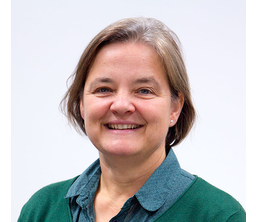Fusion 1: mare nostrum. Digital Teaching Workshop

With support from the Getty Foundation’s Conserving Canvas Initiative, the CICS will host and organise a digital teaching workshop about minimal invasive methods for the conservation of textile supports of paintings. The focus will be on local treatments of tears, cuts and losses, with special regard to the single thread bonding technique (thread-by-thread tear mending method).
At a Glance
| Category | Description |
|---|---|
| Research project |
Fusion 1: mare nostrum Digital Teaching Workshop Minimal Invasive Methods for the Conservation of Textile Supports of Paintings On focus: local treatments of tears, cuts and losses |
| Faculty | Faculty of Cultural Sciences |
| Institute | CICS - Cologne Institute of Conservation Sciences |
| Persons involved |
Dipl.-Rest. Petra Demuth Dr.-Ing. Hannah Flock M.A. Prof. Dr. Andrea Pataki-Hundt |
| Sponsors | Getty Foundation's Conserving Canvas Initiative |
| Duration | July 2021 - August 2022 |
Gallery
 0 / 0
0 / 0
The workshop instructors Dipl.-Rest. Petra Demuth and Dr.-Ing. M.A. Hannah Flock in front of a painting of St. Ursula (Image: TH Koeln - CICS - Petra Demuth/Hannah Flock)
 0 / 0
0 / 0
The Digital Teaching Workshop Fusion 1: mare nostrum will be about minimal invasive methods for the conservation of textile supports of paintings with the focus on local treatments of tears, cuts and losses (Image: TH Koeln - CICS - Petra Demuth/Hannah Flock)
Program Description
The digital teaching workshop consists of a 10 days intensive course. After the workshop, there is a follow-up period of approximately 3 months with 5 digital meetings planned. The workshop aims to familiarize primarily museum painting conservators in the selected regional community of Mediterranean Countries (e.g. Croatia, Egypt, Israel, Italy, Greece, Lebanon, Montenegro, Spain, Turkey) with different minimal invasive methods to close tears, cuts and losses to reconstruct the continuity of textile supports.
The focus is on the single thread bonding technique used for closing local interruptions like tears and cuts in the textile support as well as the application of inserts in the case of fabric loss.
Local damages in textile supports of paintings have been traditionally repaired with high-risk and uncontrolled methods such as patches and linings. Therefore, paintings are often unnecessarily removed from their stretchers and impregnated with adhesives. To avoid such destructive interventions, which affect the integrity of the paintings, the advanced minimal invasive methods are based on the investigation of the mechanical behaviour of canvas paintings as well as the material testing of adhesives.
The aim of the workshop is to support the concepts of painting conservators with reliable data, which are the result of extensive investigations. The workshop is based on the combination of theory, case studies, discussions, demonstrations and practical sessions with numerous technical aspects explained in detail.
The participants will have a unique opportunity to study, analyse and assess several selected minimal invasive interventions in practice. The participants will receive a series of specially selected instruments and materials (e.g. fine tools and stereo microscope) to allow them to carry out the conservation treatment directly in their studios. This equipment can be retained by the participants after the workshop, allowing for the techniques presented to be incorporated into studio practice. The instructors will support the participants during the conservation treatment of a selected painting on a textile support, sourced from their collections, in a series of consultation sessions after the workshop. Curators of the collections will also be invited to join selected components of the workshop.
Furthermore, the participants will receive handouts of all presentations, extensive bibliography covering the relevant topics and selected papers, data sheets and information about the materials and equipment (incl. supplier information).
The workshop language will be English without individual translation.
Workshop Structure
The digital teaching workshop Fusion 1: mare nostrum will be led by Dipl.-Rest. Petra Demuth and Dr.-Ing. Hannah Flock M.A. The workshop will be enriched by Prof. Dr. Andrea Pataki-Hundt as Head of Project.
The workshop will be held in March 2022. In the following months, a total of five more meetings will take place.
Application
Application deadline is 1st September 2021; all application materials should be sent by email to workshop-fusion@th-koeln.de.
Application details can be found as a download on the project page.
Download and Links
- Announcement Fusion 1: mare nostrum, Digital Teaching Workshop Announcement and application details for Fusion 1: mare nostrum
- Fusion 1: mare nostrum on Facebook
- Fusion 1: mare nostrum on Instagram
- Fusion 1: mare nostrum on Twitter





